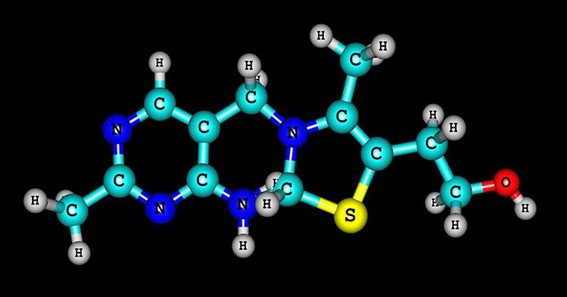Vitamin B-1 deficiency in humans leads to the development of a disease called Korsakoff syndrome which is also associated with alcoholism.
One way patients at risk of WKS can get help is by identifying and treating the disease promptly. Anyone can suffer from this disease, here are 5 signs that show someone has Korsakoff syndrome.
What Is Korsakoff Syndrome?
Korsakoff syndrome is a chronic brain and memory disorder that occurs due to an acute deficiency of thiamine (Vitamin B1) in the body. This stage of brain disorder is a chronic one compared to the acute stage termed Wernicke’s encephalopathy.
The difference is this; Wernicke’s encephalopathy is short-term but acute while Korsakoff syndrome is a chronic and long-term effect of an untreated Wernicke’s encephalopathy.
Thiamine is an important vitamin needed in the body and helps convert food to energy.
Who Is At Risk for Korsakoff Syndrome?
Korsakoff syndrome mainly affects people with alcohol use disorder, hence, it has more impact on men than women who are between ages 40 and 70.
Women and younger ones who suffer from this syndrome may be a result of other causes like kidney failure, malnutrition, stomach disease, and advanced stages of cancer among others.
Click here – Common Dental Implant Problems You Should Know
What Are The Causes of Korsakoff Syndrome?
Aside from the acute lack of thiamine in the body, Korsakoff syndrome manifests as a result of other factors as outlined below.
- Feeding disorders
- Prolonged infections
- Brain injury
- Malnutrition
- Excess alcohol intake
- Surgery involving the digestive system
5 Symptoms of Korsakoff Syndrome
Symptoms of Korsakoff syndrome differ from that of Wernicke’s encephalopathy, it is more severe and life-threatening.
- Confabulation
Due to the inability to retain and remember events, victims of Korsakoff syndrome make up wrong information to cover up memory loss.
Victims do believe whatever they say at this point which may not be true. Scientists have not ascertained the reason for such behavior.
- Hallucination
Victims of Korsakoff syndrome have illusions of things that are unreal, they hear voices and can be propelled to act negatively. This symptom occurs most with those withdrawing from alcohol.
- Inability to Comprehend
Korsakoff syndrome makes it difficult for its victim to understand events, information, and directions given. Their brain becomes unable to process information and this also leads to the inability to put words into context.
This affects their social interaction, therefore encouraging isolation from people.
- Loss of Coordination
Aside from the ability to retain events and information, victims of Korsakoff syndrome encounter balance and movement issues.
Illness like leg tremors, weakness of arms and legs, and short steps can surface. They always walk slowly and unsteadily which always requires human assistance.
- Eye Problems
The effects of Korsakoff syndrome also affect the vision of its victim, they encounter blurry vision, double sight, drooping eyelids, and abnormal eye movement.
Also, a chronic effect can cause eye muscle paralysis or weakness.
Is Korsakoff Syndrome Curable?
Korsakoff syndrome is not curable but symptoms can be managed and gradually reversed. Treatment for Korsakoff syndrome may involve, administrating vitamin B1 tablets or injections, nutritional aid, rehydration, and alcohol withdrawal treatment.
Click here – 6 Ways To Make Your Remote Team More Autonomous






